Wild Camping in the UK – Your Quick Guide
If you love the idea of sleeping under the stars without paying a night’s fee, wild camping is the answer. It works across the UK, but the rules differ from Scotland to England, and from a beach to a forest. This guide gives you the basics, the safest spots, and a few tricks to make your adventure smooth.
Legal basics you need to know
In Scotland you can pitch a tent on most uncultivated land thanks to the Land Reform Act. Just keep away from crops, private homes and protected sites. England and Wales are stricter – you need permission from the landowner or you must stick to designated ‘dispersed’ sites in forests and national parks. The same goes for public beaches: some councils allow overnight stays in certain areas, but many treat it as trespassing. Always check local signs, council websites or ask a nearby ranger before you set up.
Boondocking – staying with your motorhome off‑grid – follows the same rules. If you’re on private land, a quick chat with the owner can save you a fine. On public land, look for ‘free parking’ spots that aren’t marked as no‑overnight‑stay zones. A simple “Is it okay to stay here tonight?” can go a long way.
Top free wild camping spots
Scotland offers endless options. The Highlands, Cairngorms and Isle of Skye have vast stretches where you can pitch a tent after a short walk from the road. Just leave no trace and respect livestock.
In England, Dartmoor is the go‑to place for free wild camping, but you must stay away from farms and follow the Dartmoor National Park guidelines. The New Forest also allows limited wild camping – stick to the edges of the forest and keep your site small.
For beach lovers, the coast of North Wales has a few secluded bays where overnight stays are tolerated if you’re discreet and clean up. In Cornwall, places like Porthgwarra Beach sometimes work, but always check the local council’s stance.
If you prefer forest land, many State Forests in the UK have free ‘dispersed’ camping spots. Look for signs that say “Free camping – no facilities”. These sites usually have no toilets, so bring a portable solution and pack out everything you bring in.
Want a true wilderness feel? Try cowboy camping – just a sleeping bag and a tarp on a clear patch of ground. It’s popular in the Lake District and the Yorkshire Dales. The key is to choose flat ground, stay low‑key and leave no trace.
Car camping works the same way as motorhome boondocking. If you’re on a lay‑by or service station, make sure the area isn’t marked ‘No overnight parking’. A quick look at the local council website can tell you if it’s allowed.
Thinking about buying a piece of land to camp on? It’s possible, but you’ll need planning permission for any permanent structures. For a simple wild‑camping retreat, a small plot with grazing rights can work, as long as you follow local planning rules.
Keep these tips in mind, and you’ll enjoy wild camping without stressing over fines. Respect the land, stay safe, and enjoy the freedom of the open road.
-
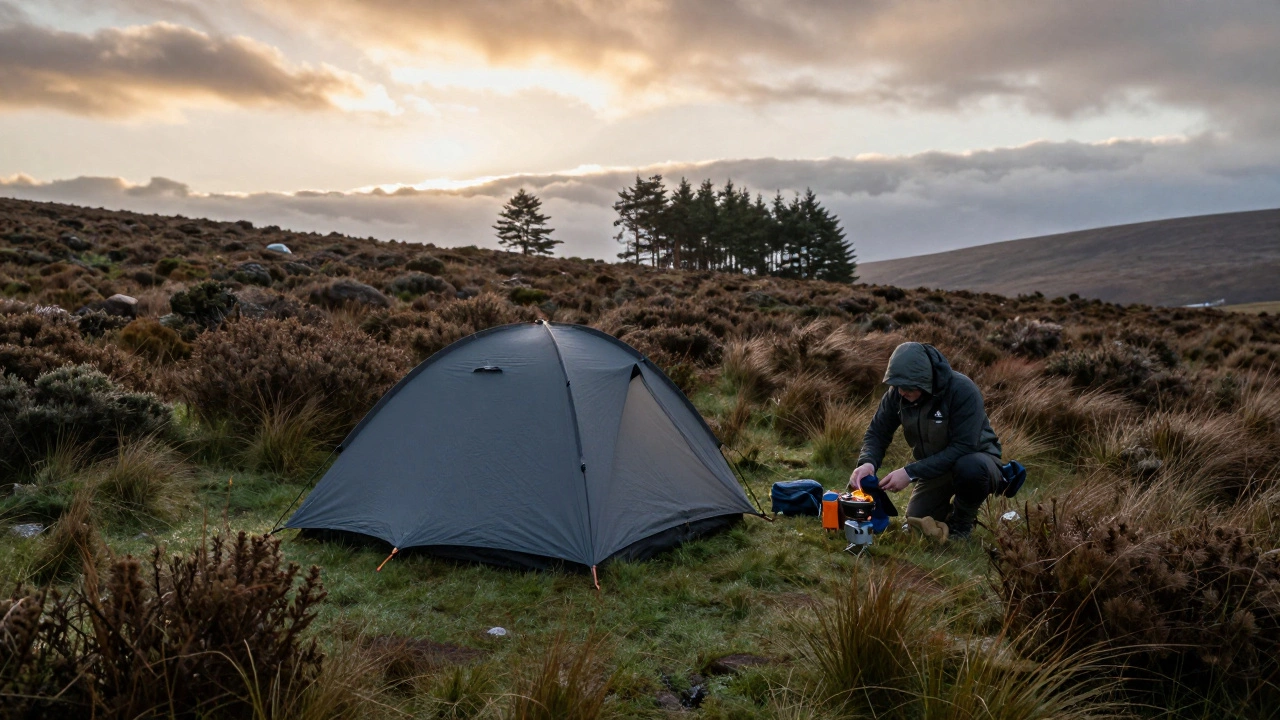 VIEW POST
VIEW POSTCan You Sleep in a Tent in the UK? The Real Rules for Wild Camping
Jan, 18 2026|0 CommentsYou can sleep in a tent in the UK-but only in certain places. Scotland allows wild camping with rules. England and Wales mostly don't. Know where it's legal, what gear you need, and how to avoid fines. -
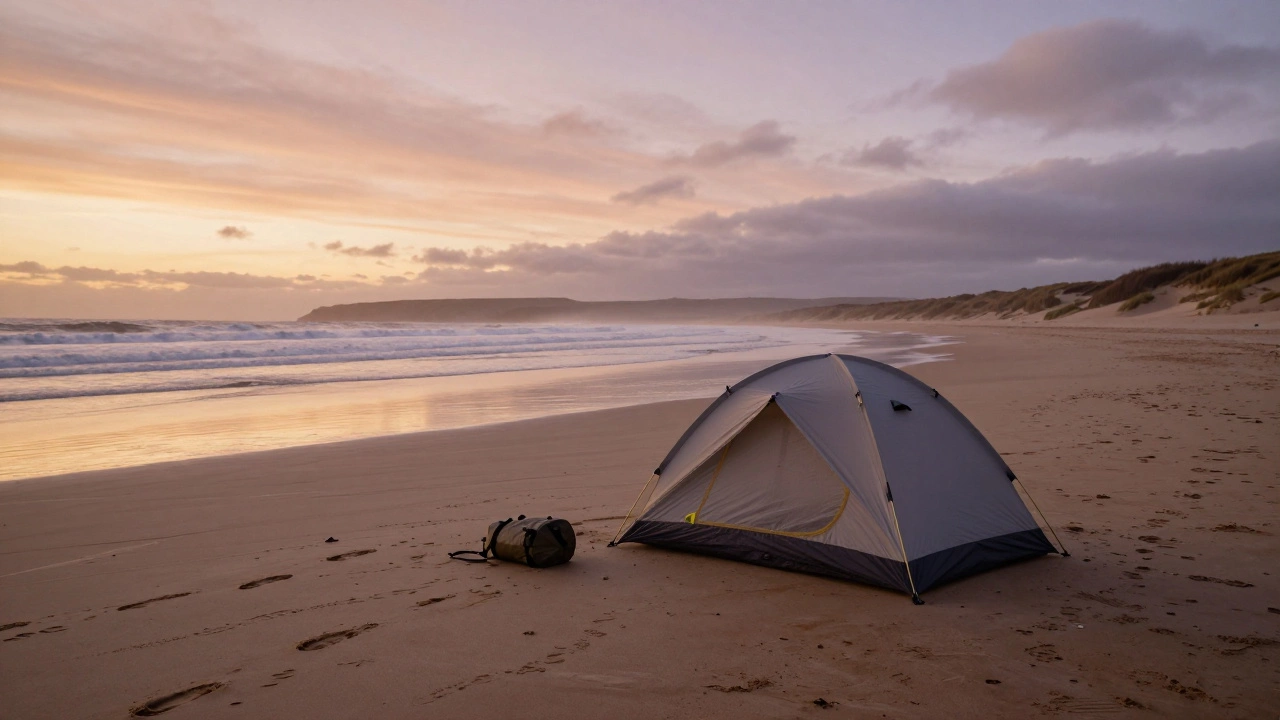 VIEW POST
VIEW POSTCan You Sleep in a Tent on the Beach in the UK? Here’s What You Need to Know
Jan, 8 2026|0 CommentsCan you sleep in a tent on the beach in the UK? The answer varies by region. Scotland allows it with responsibility; England and Wales mostly don’t. Learn where it’s legal, what the fines are, and safer alternatives. -
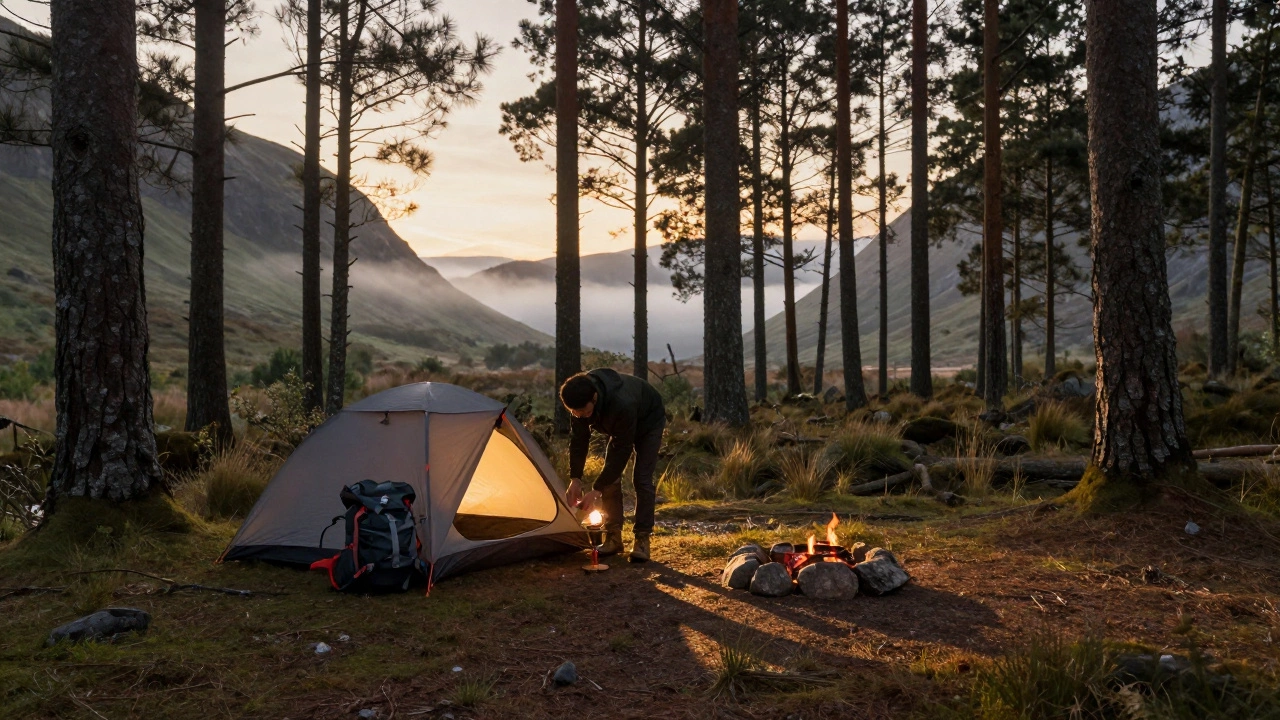 VIEW POST
VIEW POSTCan You Just Camp in the Forest? What You Need to Know Before You Go
Dec, 28 2025|0 CommentsCan you just camp in the forest? The answer isn’t yes or no-it depends on where you are, what you do, and how prepared you are. Learn the real rules, where it’s legal, and how to camp responsibly without fines or harm to nature. -
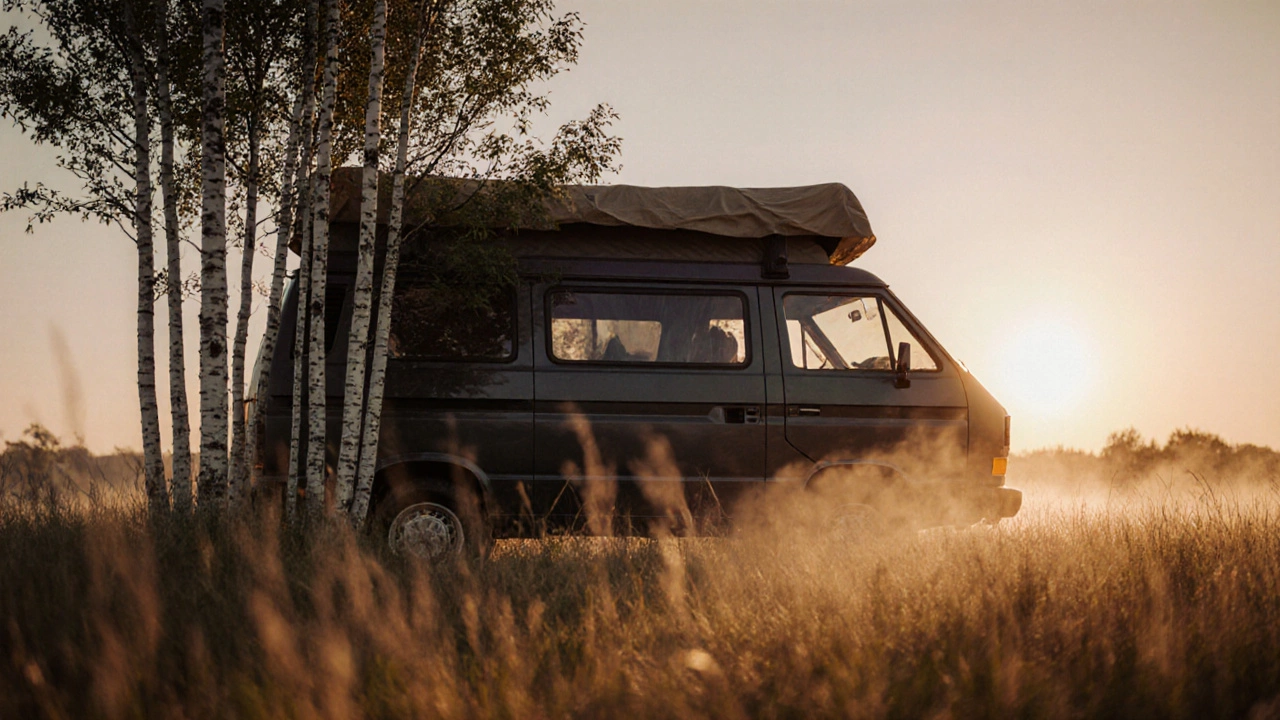 VIEW POST
VIEW POSTWhat is Stealth Camping in the UK? A Complete Guide
Oct, 18 2025|0 CommentsLearn what stealth camping UK means, the legal rules, top locations, gear tips and safety advice for low‑profile wild stays across Britain. -
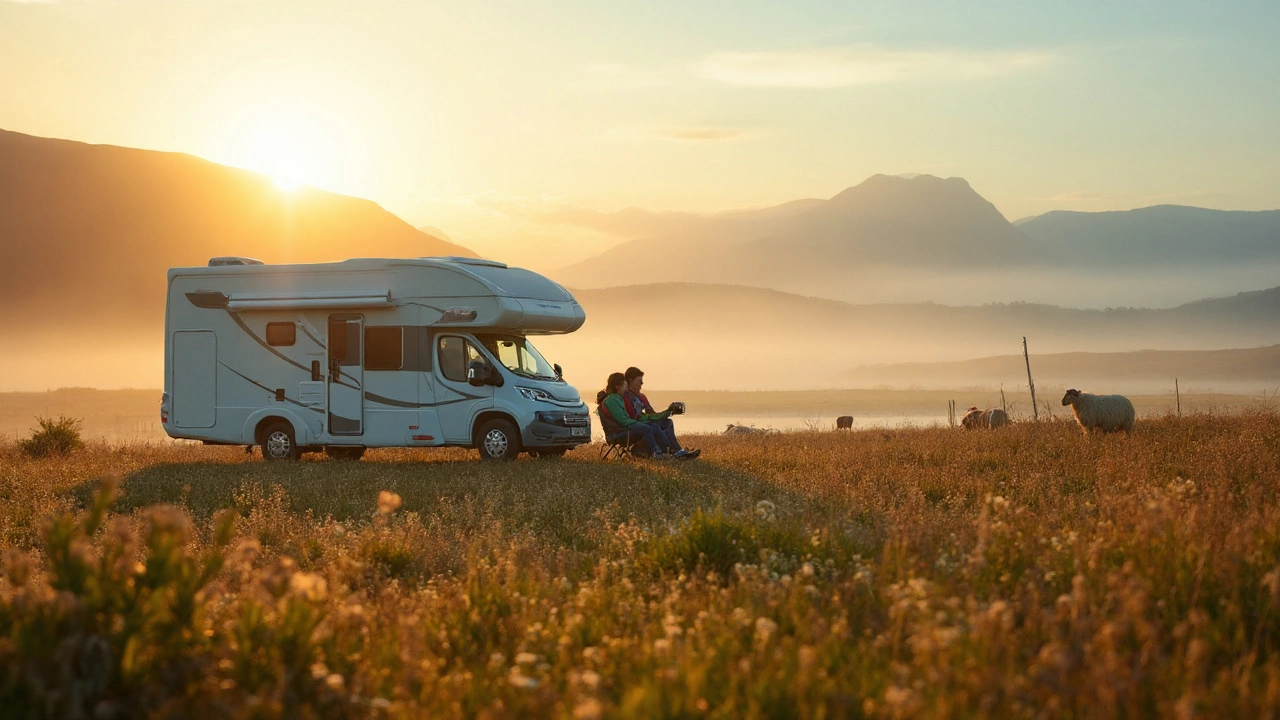 VIEW POST
VIEW POSTBoondocking Explained: Wild Camping for Motorhomes and Adventurers
Aug, 7 2025|0 CommentsCrack open the world of boondocking—what it is, why it rocks, and how to do it right with your motorhome. Get real tips, facts, and what you need to know. -
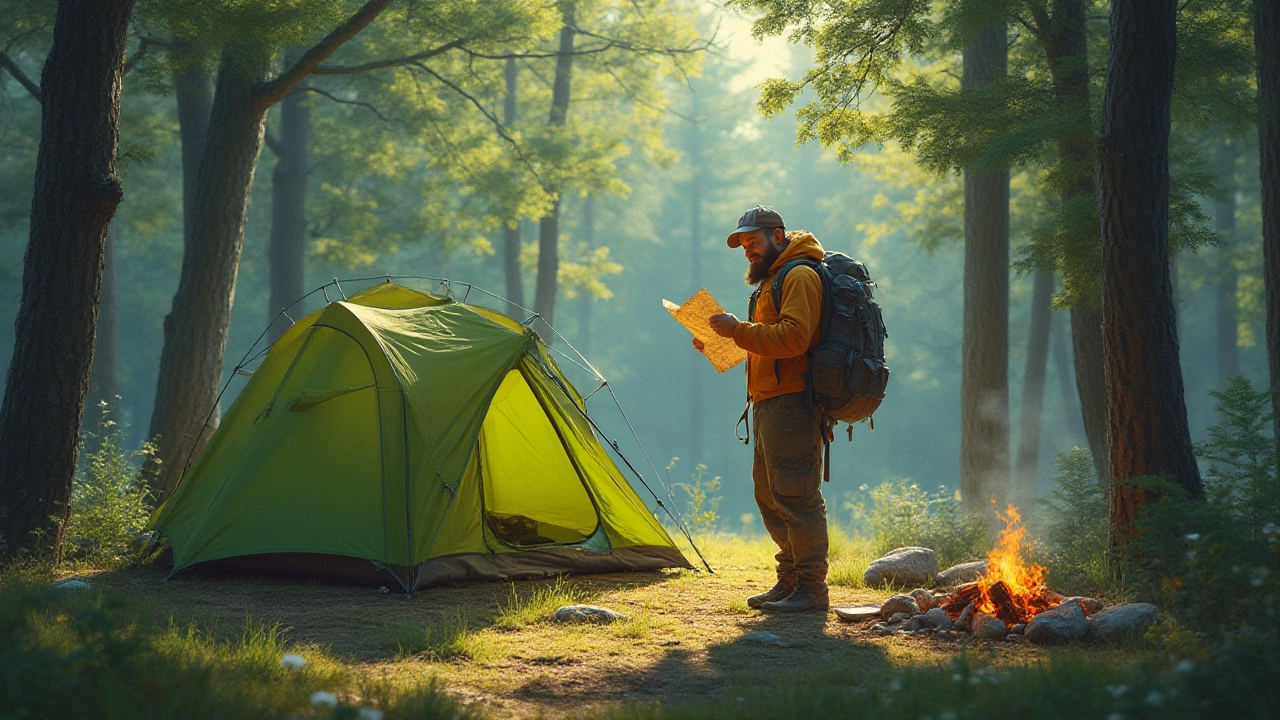 VIEW POST
VIEW POSTWisconsin State Forests: Tips for Free Camping and Hidden Spots
Jul, 24 2025|0 CommentsCurious about free camping in Wisconsin State Forests? Get the lowdown on dispersed sites, fees, permits, and survival tips from an Aussie dad who's been there. -
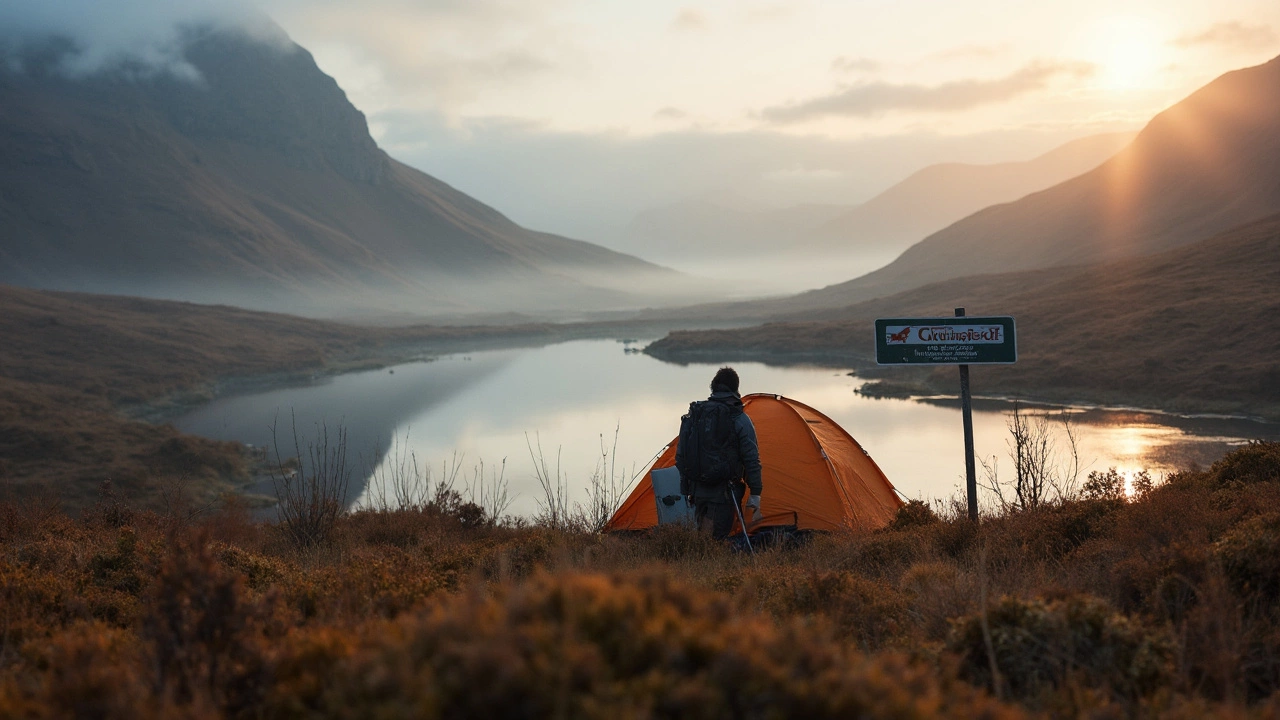 VIEW POST
VIEW POSTWild Camping in Scotland: What You Can (and Can't) Do
May, 29 2025|0 CommentsCurious if you can wild camp in Scotland? This article explains Scotland’s unique laws, where you’re allowed to pitch a tent, and what rules to follow. It covers exactly what wild camping means here, areas to avoid, and practical tips for a stress-free experience. Straight answers, no fluff—just what you need if you're thinking about heading out with a tent. Whether you’re a first-timer or a regular, you’ll walk away knowing your rights and your responsibilities. -
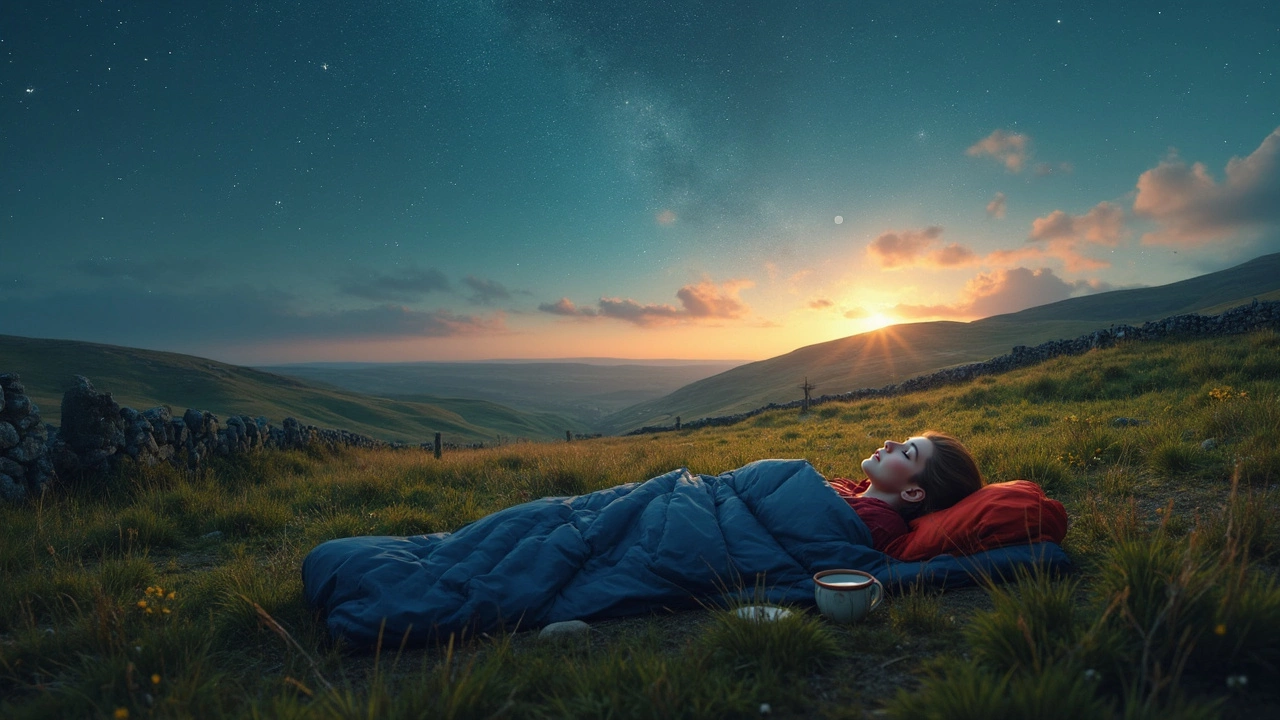 VIEW POST
VIEW POSTCowboy Camp: The Wildest Way to Camp in the UK
May, 1 2025|0 CommentsCowboy camping strips camping back to its roots—no tent, no barriers, just you, a sleeping bag, and the sky. Loads of outdoor lovers in the UK are giving it a go for a genuine taste of freedom (and stargazing). This guide cuts through the myths and breaks down how cowboy camping actually works, what risks you might face, and how to have the best night possible. Expect practical tips and a look at what makes this wild camping style such a standout experience. If you've ever wanted to wake up with dew on your face and birds screaming at the dawn, this one’s for you. -
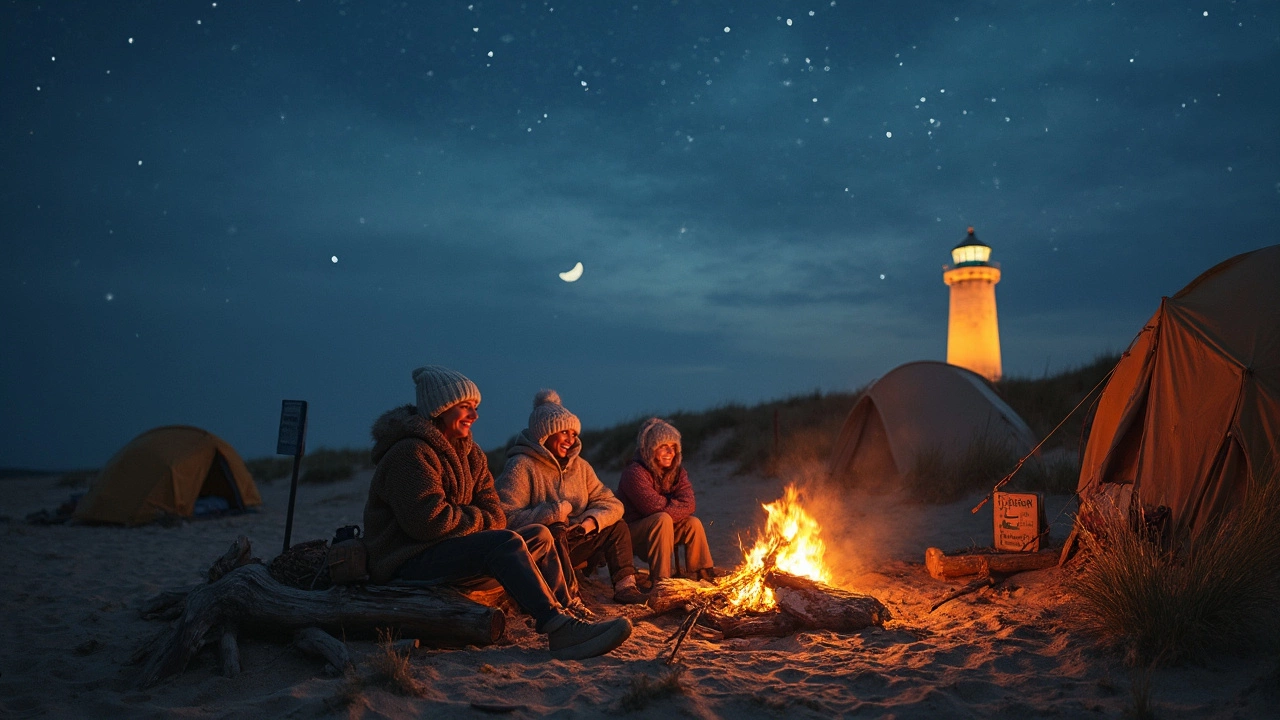 VIEW POST
VIEW POSTCan You Camp on Public Beaches in the UK? Everything You Need to Know
Apr, 27 2025|0 CommentsThinking of sleeping under the stars on a UK beach? The rules are trickier than they seem. This article explains the legal ins and outs of camping on public beaches, shares practical tips to avoid fines or trouble, and highlights cool beach spots where camping might be possible. Get the facts, avoid the pitfalls, and learn how to make your UK beach camping dream a reality—if you know how to do it right. -
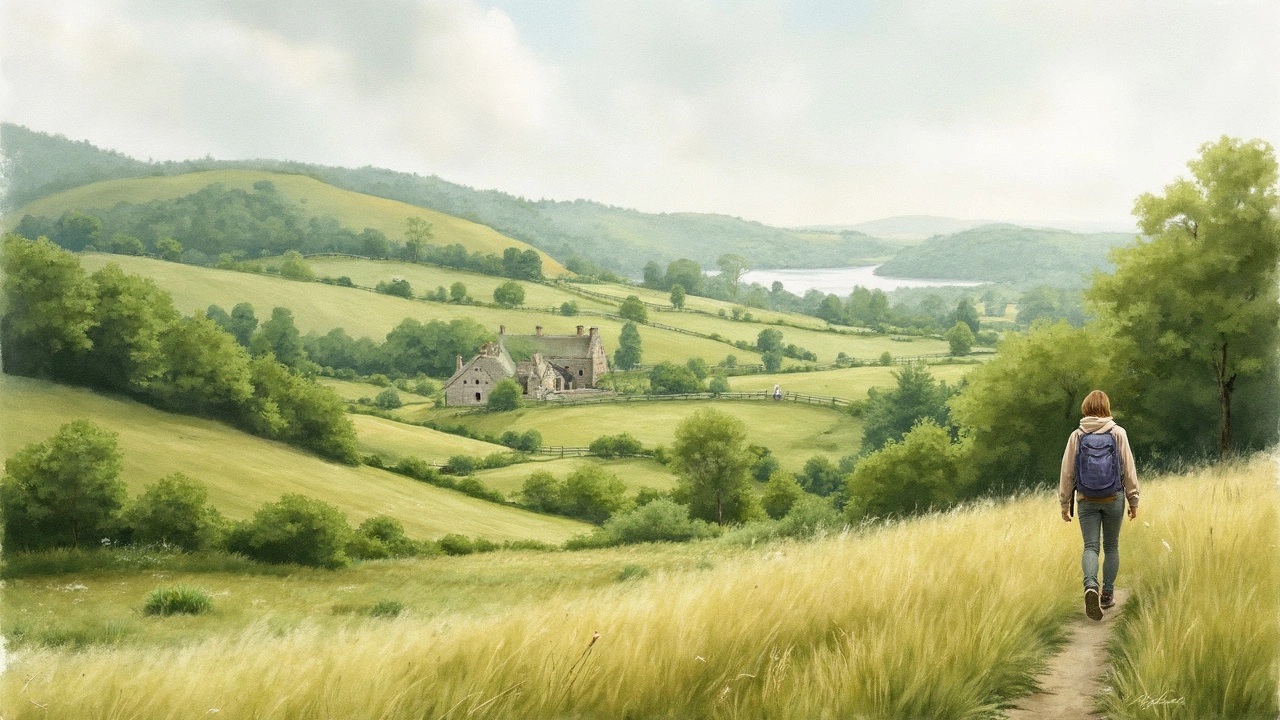 VIEW POST
VIEW POSTCan I Buy Land and Live on It in the UK?
Apr, 10 2025|0 CommentsThinking about owning a piece of the UK countryside and living on it? This guide unpacks land ownership complexities, planning permissions, legalities, and potential hiccups you'll encounter. Discover fascinating insights and realistic expectations around turning your piece of land into a personal retreat. Understand not just what's possible, but practical strategies to make your dream of living on UK land a reality. From loopholes to logistics, get the lowdown on living the wild camping lifestyle on your own terms. -
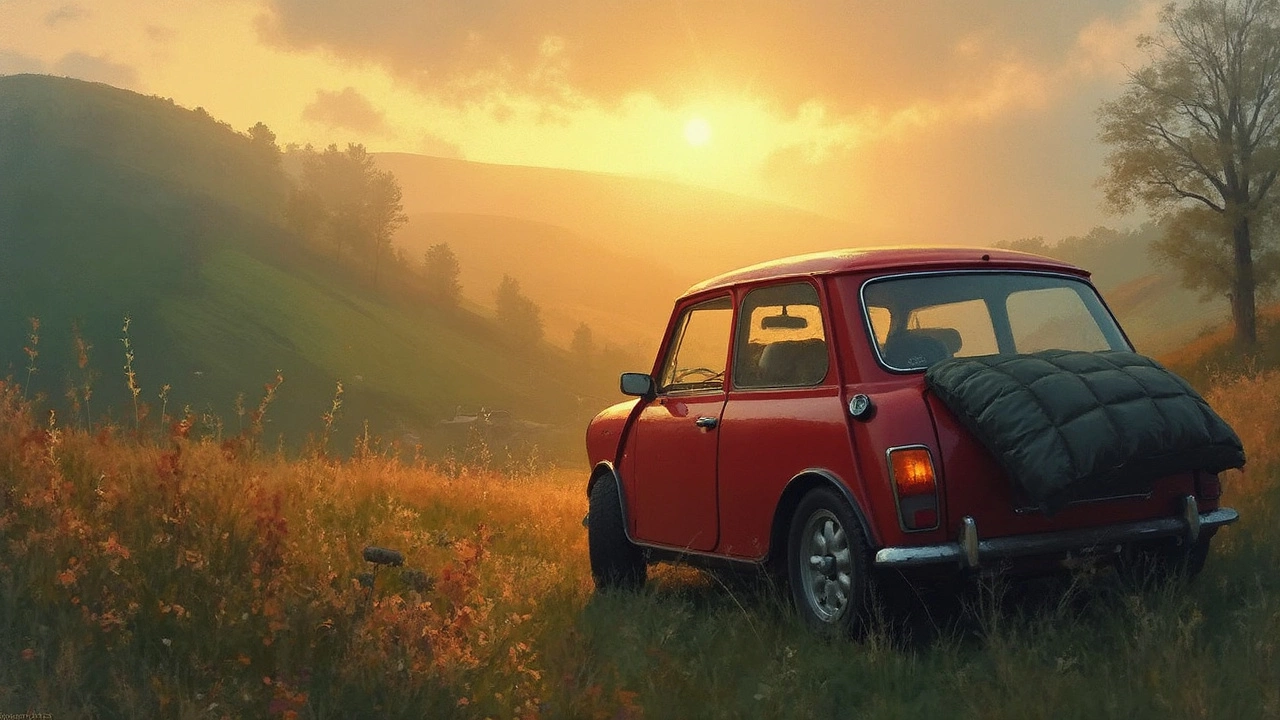 VIEW POST
VIEW POSTIs It Legal to Sleep in Your Car in the UK: Camping Rules You Need to Know
Mar, 23 2025|0 CommentsSleeping in your car might seem like a simple solution when you're exploring the UK, but the legalities can be tricky. Depending on where you park, the rules can vary. In some areas, it's perfectly legal, while others might hand you a fine. It's important to know the local regulations and respect private property to avoid any trouble. This article explores everything you need to know about catching some Z's in the comfort of your car while touring the UK. -
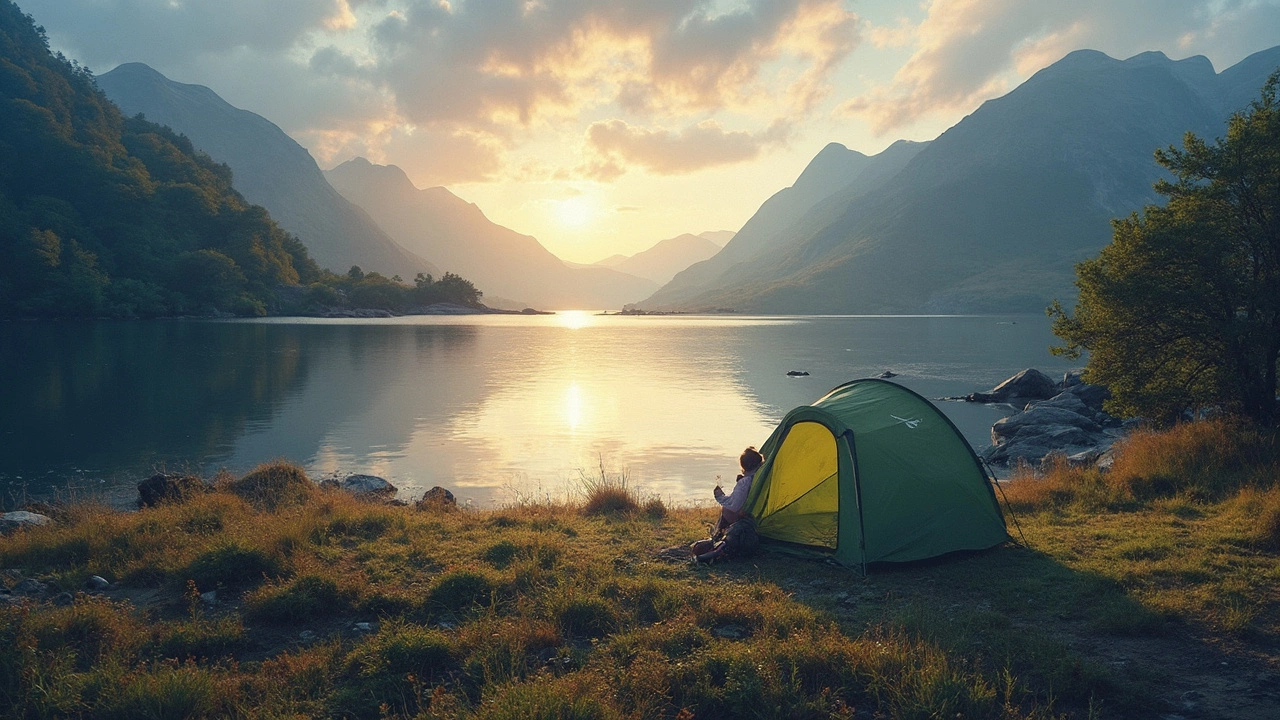 VIEW POST
VIEW POSTWhere to Camp for Free in the UK: Top Spots for Wild Camping
Mar, 2 2025|0 CommentsExplore the legal options for wild camping in the UK, an adventure that allows you to connect with nature without breaking the bank. From the rugged landscapes of Scotland to specific areas in Dartmoor, discover where you can legally pitch your tent for free. We cover essential tips, legal insights, and the best regions for a unique outdoor experience. Learn how to camp safely, minimize your impact on the environment, and fully enjoy the UK's natural beauty. Whether you're a seasoned camper or new to the wild, these tips will help you plan your next camping trip.